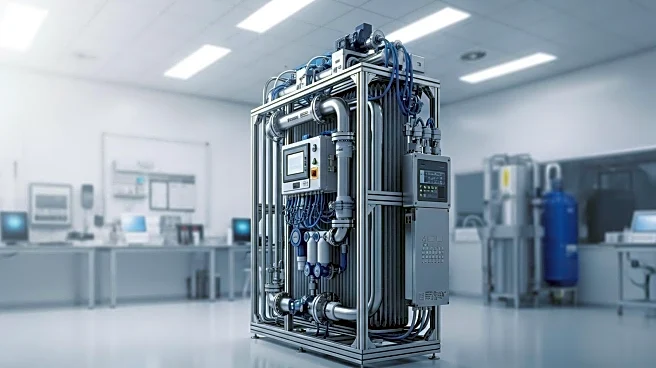What's Happening?
Seattle-based Membrion has raised $20 million in Series B1 funding to advance its ceramic desalination technology aimed at industrial wastewater reuse. The funding round was led by Pangaea Ventures, PureTerra Ventures, Ecolab, and W.L. Gore & Associates, with additional support from The Lewis Family Office and existing investors. This investment increases Membrion's total funding to $43 million, enabling the company to scale commercial installations that allow manufacturers to reclaim and reuse up to 98% of wastewater. Membrion's systems are designed to integrate into existing facilities, reducing water consumption, energy use, and chemical waste while enhancing operational resilience.
Why It's Important?
The funding for Membrion is significant as it supports the expansion of sustainable wastewater treatment technologies, which are crucial for industries facing increasing regulatory pressures and sustainability goals. By enabling manufacturers to reclaim and reuse wastewater, Membrion's technology offers a cost-effective solution that reduces environmental impact and operational costs. This development is particularly relevant as industries seek to improve resource efficiency and comply with environmental regulations, potentially leading to broader adoption of advanced water recovery technologies.
What's Next?
With the new funding, Membrion plans to accelerate the deployment of its technology across various manufacturing sectors. The company aims to reach a commercial inflection point, as noted by Sarah Applebaum of Pangaea Ventures, where industries increasingly recognize the benefits of advanced water recovery systems. As Membrion expands its installations, it may influence other companies to adopt similar technologies, further driving the shift towards sustainable industrial practices.
Beyond the Headlines
The broader implications of Membrion's expansion include potential shifts in industrial water management practices, promoting a circular economy approach. This could lead to long-term environmental benefits and set new standards for wastewater treatment in manufacturing, influencing policy and regulatory frameworks.










